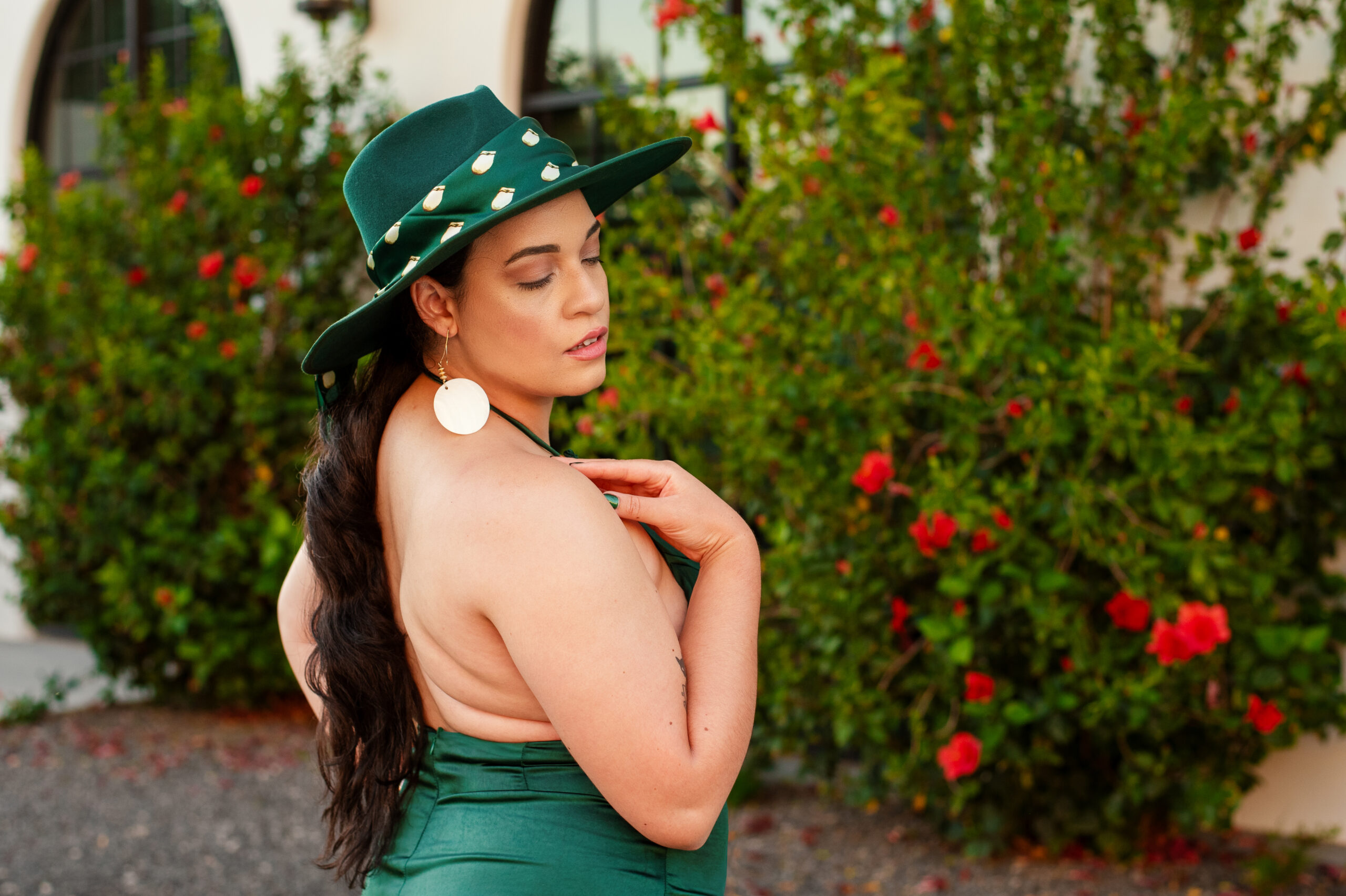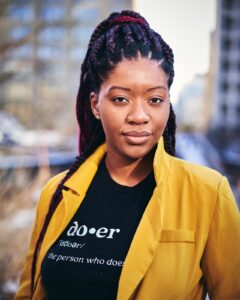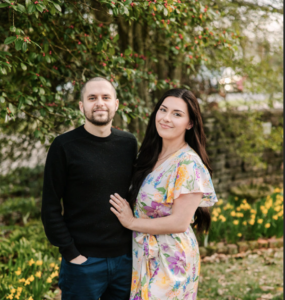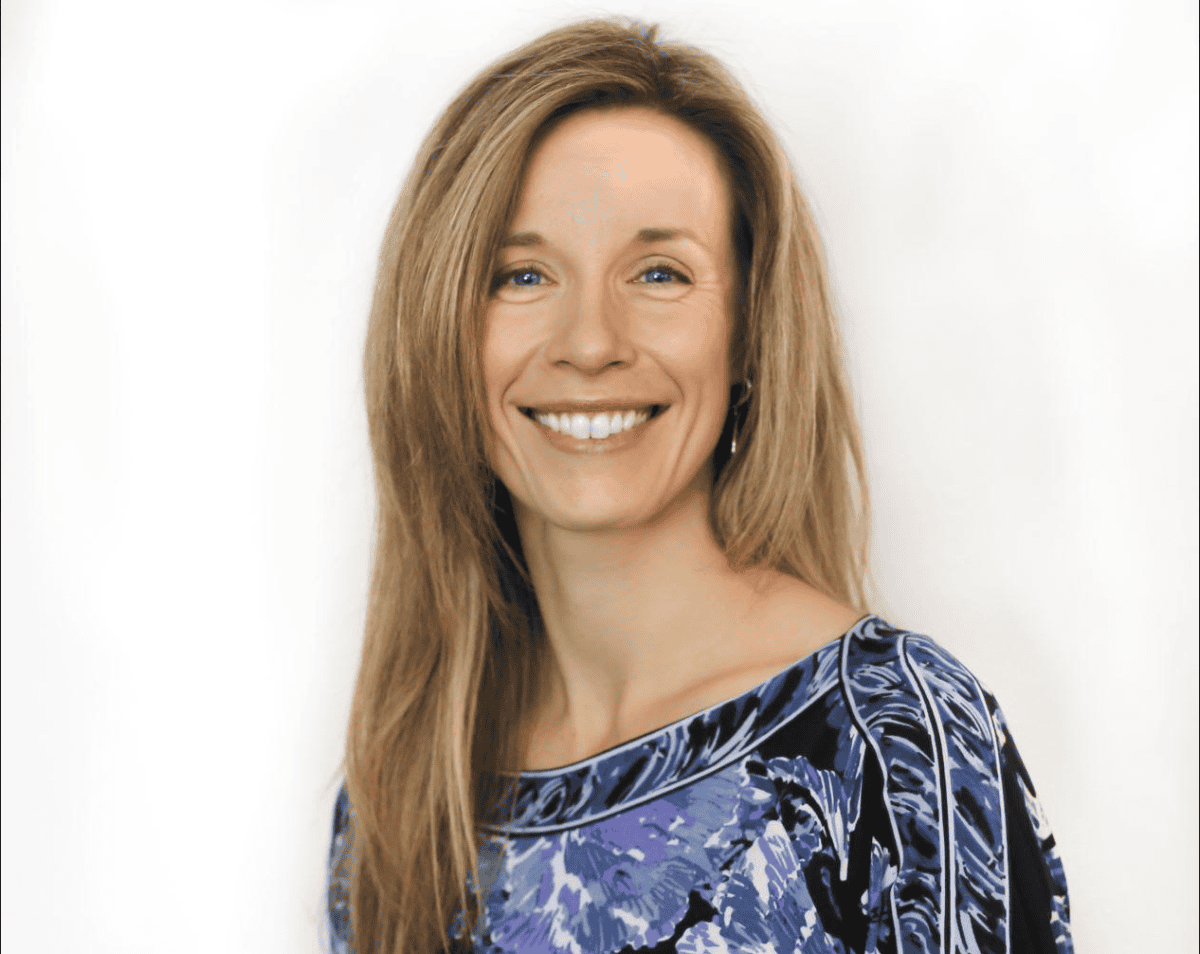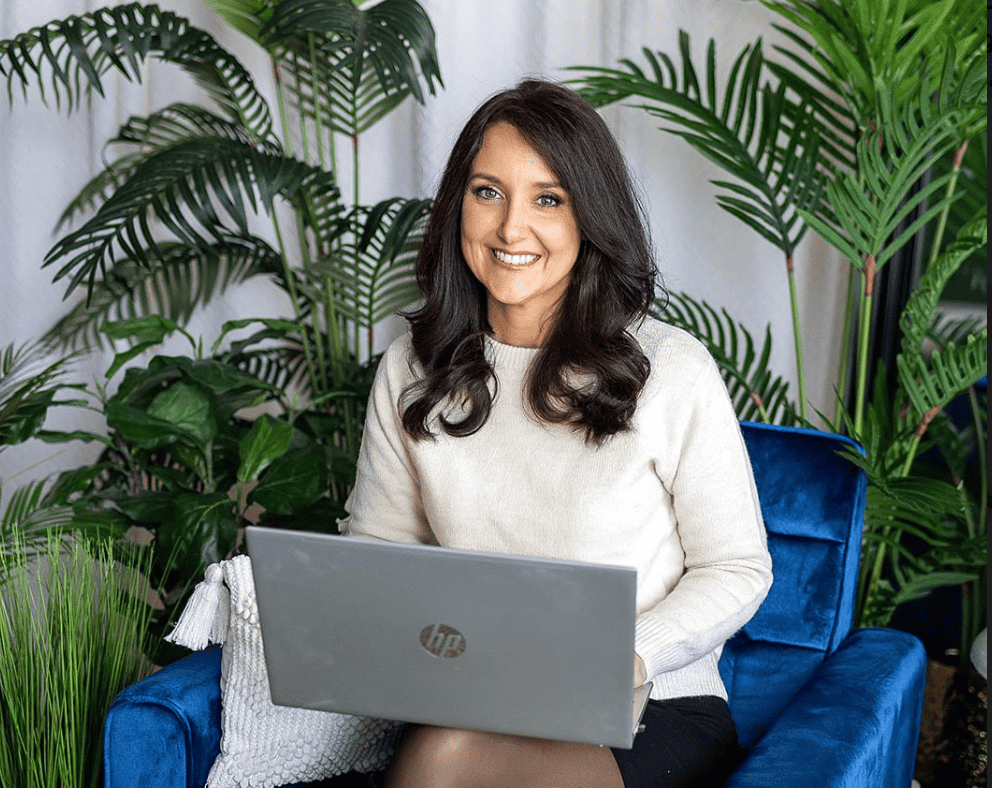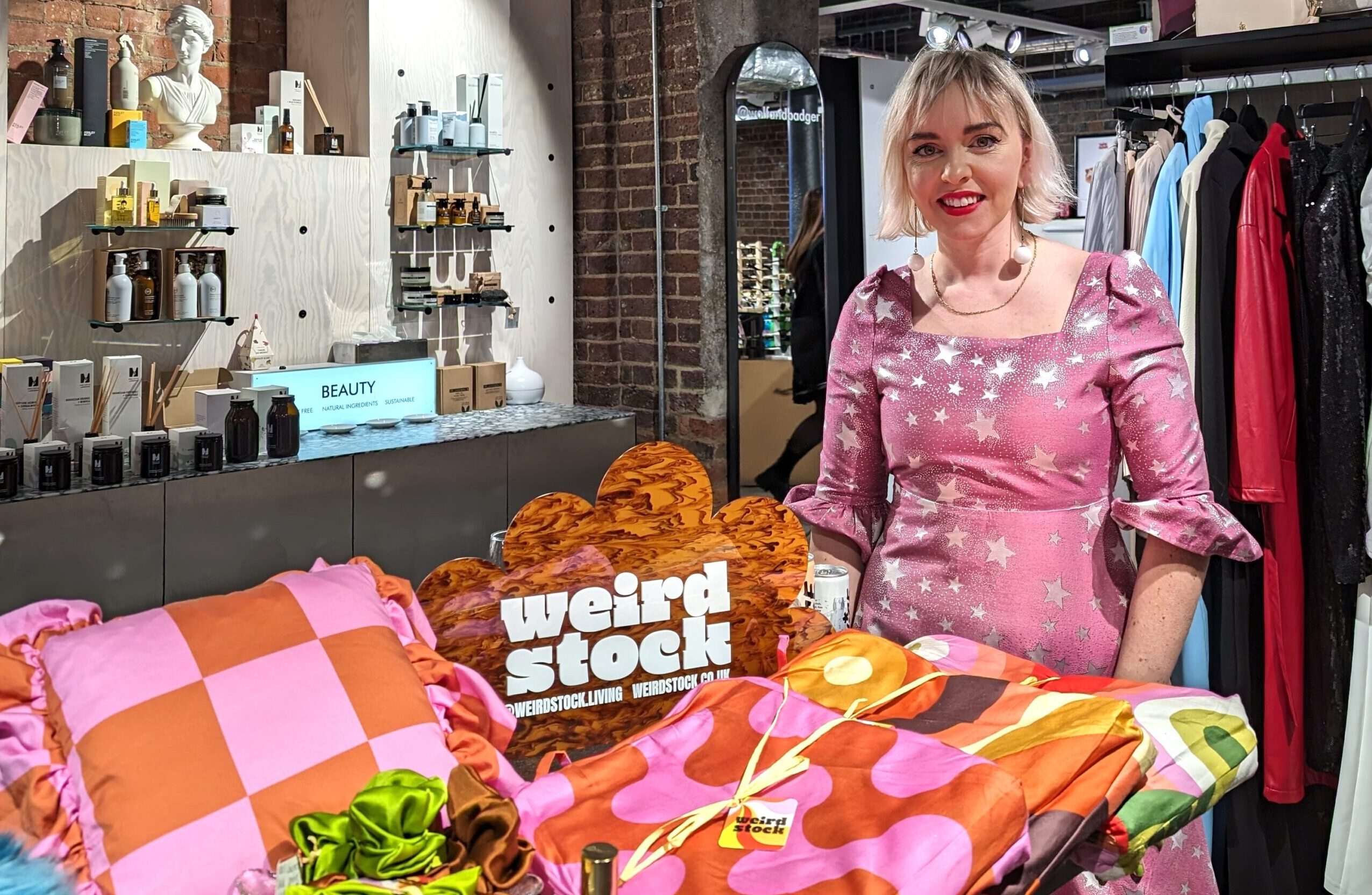In this powerful interview, Dominique Daye Hunter, founder of D. Daye Hunter Designs, LLC, and author of Seeds: Stories of Afro Indigenous Resilience, shares her inspiring journey of blending creativity, cultural heritage, and advocacy. From overcoming chronic disabilities to reclaiming her Afro-Indigenous roots, Dominique’s story is one of resilience, self-discovery, and a commitment to uplifting marginalized communities. She discusses the intersection of her personal experiences, her work in design and storytelling, and her deep connection to the land and her ancestors. Through her words, Dominique offers a profound reflection on the importance of mental health, cultural preservation, and the transformative power of storytelling.
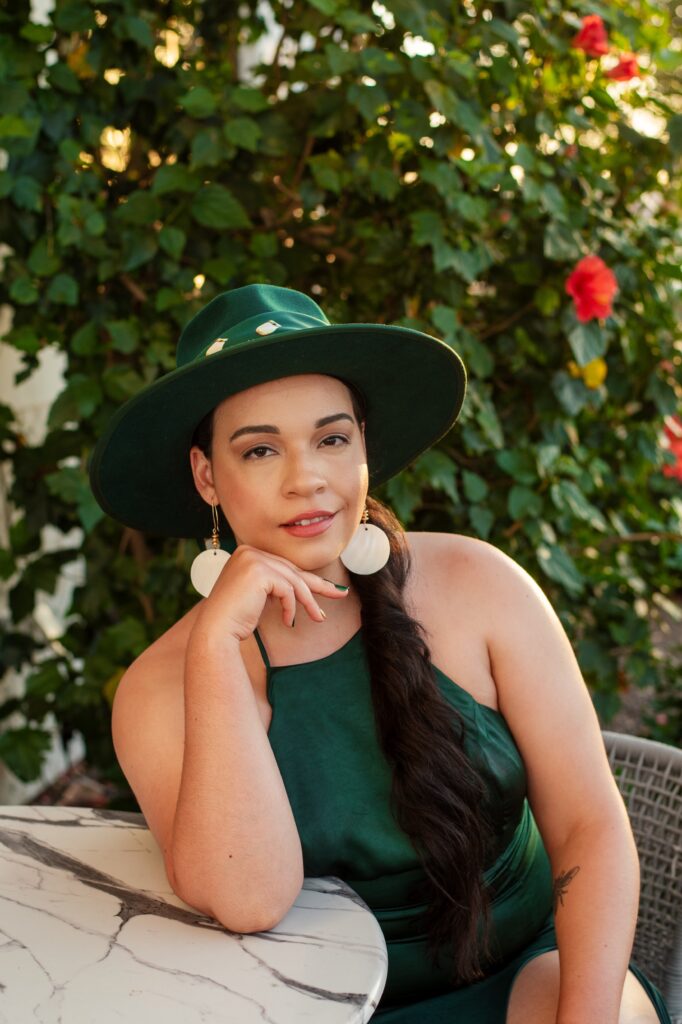
- What inspired you to create D. Daye Hunter Designs, LLC and write your book “Seeds: Stories of Afro Indigenous Resilience”?
I founded D. Daye Hunter Designs, LLC in 2018 to empower myself and create meaningful work after my chronic disabilities made it difficult for me to be employed in a conventional job. My business is a platform to merge my passion for storytelling, design, and advocacy, while also allowing me to contribute positively to my community. Seeds: Stories of Afro Indigenous Resilience was inspired by a desire to honor the untold stories of my ancestors and to explore the intersections of history, trauma, and healing in Black and Indigenous communities. It was written with the intention of bringing healing to our communities first, with the added benefit of serving as an educational resource for those outside our communities.
- How has your heritage influenced your work, both in your business and in your writing?
My heritage is a blend of Afro-Indigenous, Irish, and Polish roots, which has profoundly shaped my approach to both my business and my writing. This diverse background has fueled my commitment to uplifting Black, Indigenous, and Afro-Indigenous communities through my work. My writing and designs are deeply rooted in our cultural history and the need to preserve and share these stories with future generations. Additionally, it has driven me to offer training in cultural competency, intersectionality, emotional intelligence, and bias awareness, aiming to help white colleagues better understand and navigate the complexities of these issues. My goal is to foster greater empathy, awareness, and collaboration across different cultural experiences, creating more inclusive and equitable spaces.
- Can you share a bit about your journey to discover and connect with your Afro-Indigenous roots?
My journey to reconnect with my Afro-Indigenous roots has been deeply influenced by my family’s history, particularly that of my Afro-Saponi grandfather, Ora Daye. Growing up during the Jim Crow Era, he was one of 11 siblings who were more Black-presenting and was forced to migrate to Buffalo, NY, to find meaningful employment. He thrived there, working as a security guard, a school bus driver, and eventually owning his own cheesesteak restaurant. However, this migration made it challenging for his children to maintain their connection to our roots in North Carolina. While some of my aunts and uncles were able to travel south to help my great-grandfather harvest tobacco and corn and learn traditional ways of life, my mother was unable to do the same due to extenuating circumstances.
After being estranged from her father and the Daye family for most of her adult life—primarily due to escaping a domestic violence relationship and surviving as a single mother in New Jersey—we finally reconnected with my uncles, aunts, and extended family while living in Arizona decades later. For the next five years, I worked towards moving to North Carolina and eventually did so in the spring of 2023, following my mother, who moved here three years earlier.
It has not been an easy journey, but we are finally home and actively reconnecting with our culture through our participation in cultural events, language gatherings, and ceremonies. My work as Program Manager for Indigenous East, a land rematriation nonprofit organization network, supports land retention and acquisition for Indigenous and Afro-Indigenous families and communities east of the Mississippi.
- What were some of the biggest challenges you faced while bringing your vision to life, and how did you overcome them?
One of the biggest challenges was, and still is, balancing my health with my work. Chronic illness and neurodivergency pushed me to transition to full-time entrepreneurship earlier than expected. Research indicates that approximately 80% of neurodivergent individuals earn a college degree, yet only about 20% are employed full-time after graduation (National Center for Neurodiversity Research). Additionally, the U.S. Bureau of Labor Statistics reports that the employment-population ratio for people with disabilities is 35.6%, compared to 77.8% for people without disabilities (BLS, 2023). This shift allowed me to create a business that is both fulfilling and adaptable to my needs, though I must continually make adjustments. Investing in creating a safer space for myself and others is a key focus. Overcoming self-doubt has also been a significant challenge, which I address through self-reflection, therapy, building self-esteem, and cultivating a loving support network. To combat systemic barriers, I support law and policy changes that uplift human and civil rights and work creatively with other BIPOC business owners to uplift, encourage, and promote one another.
- How do you see your work contributing to the healing and revitalization of the communities you aim to empower?
My work contributes to the healing and revitalization of the communities I aim to empower by addressing the long history of being ignored and silenced. Our ancestors and people have been marginalized for far too long. I believe that feeling is essential to healing. Through storytelling, I seek to bring to light the experiences and traumas that have been suppressed. Sharing these stories can be profoundly healing, but it is also important to recognize that retelling certain parts of trauma can be retraumatizing. Therefore, I encourage exploring alternative means of healing, such as art and connecting physically with Mother Earth (i.e., hiking, dancing, chopping wood). These practices allow for a holistic approach to healing and can complement the process of storytelling, offering multiple avenues for empowerment and revitalization.
- How has your personal journey of healing shaped your approach to your creative and professional endeavors?
Healing has been central to my journey, guiding both my creative and professional work. I’ve learned that healing is not linear and that it requires a deep commitment to self-care, community, and honesty. This understanding informs how I approach every project, ensuring that each endeavor is a step towards greater wholeness for myself and those I work with.
- Can you discuss the importance of storytelling in preserving cultural identity and fostering community resilience?
Storytelling is a fundamental and dynamic tool in preserving cultural identity and fostering community resilience. It’s not just a cultural practice of Indigenous peoples or something for children before bed. Our brains function in storytelling mode. That’s right: the information your brain takes in is synthesized into narratives that structure your reality, inform your worldview, and heavily influence your decision-making. Our entire world is built on storytelling—the way we interpret events, understand our history, and make sense of our experiences is all shaped by the narratives we create. Through storytelling, we preserve and share our cultural heritage, teach values, and build connections within our communities. By integrating our stories into our daily lives, we maintain our cultural identity and strengthen the resilience of our communities.
- What role does mental health play in your work, both in your business and in your personal life?
Mental health is integral to both my personal life and my professional endeavors. Engaging deeply with storytelling and creative work requires me to maintain a healthy emotional and mental state. For my business, this means staying balanced to foster creativity and effectively support others. Storytelling serves as a means to navigate and articulate personal experiences, contributing to resilience and well-being. This is also mirrored in our use of the Indigenous language Yesáh. More than just a collection of words, this language embodies a worldview that connects us to the Earth and to each other. It plays a vital role in giving our lives meaning and addressing critical issues such as the high rates of depression, suicide, and substance abuse in Indigenous communities.
- How do you maintain your own mental well-being while working on projects that are so deeply connected to your identity and community?
I maintain my mental well-being by setting boundaries, practicing mindfulness, and ensuring that I have a strong support system, which I must intentionally remind myself to reach out to regularly. I also prioritize self-care and regularly take time to disconnect and recharge, which helps me stay grounded while engaging in emotionally intense work. All of these practices are a work in progress, as maintaining a balance between self-care, interdependence, and productivity is counter-intuitive to the systems we live and work within.
- What advice would you give to other women who are looking to explore and honor their cultural heritage through their work?
Be proud and never forget who you are and where you come from. Don’t be afraid to ditch the western cultural norms that society pressures you to conform to. While code-switching is important for physical, financial, and to an extent social survival, don’t leave behind those things that make you feel good in your own skin—you need those, too, to survive spiritually, mentally, and emotionally. Embrace your heritage with pride, and let it guide your path.
- How do you balance the different aspects of your work—design, writing, and community empowerment?
Balancing my writing, design, and community work requires deep connection to my purpose and flexible yet intentional and feedback responsive planning. I focus on projects that align with my values and allow for cross-pollination between different areas of my work. For instance, my writing often informs my designs, and both are tools for community empowerment.
- What has been the most rewarding aspect of your journey so far?
The most rewarding aspect has been witnessing the impact of my work on others. Whether it’s through a poem, a piece of clothing, or a workshop, knowing that I’ve helped someone feel seen, heard, or empowered by sharing our stories is incredibly fulfilling. Additionally, having survived this far despite all the obstacles and traumas, I am so grateful to give my inner child and current self a beautiful life while building a legacy for the future and a good retirement for elder Dominique.
- How do you hope your book “Seeds: Stories of Afro Indigenous Resilience” will impact readers and the broader community?
I hope Seeds serves as a source of inspiration and a catalyst for reflection. I want readers to feel connected to the stories within it and to see themselves in the narratives of resilience and healing. Ultimately, I hope it encourages more people to explore and share their own stories.
- What lessons have you learned through your work that you believe are important for other women to hear?
I’ve learned that resilience is often found in vulnerability and that true strength comes from being authentic. It’s important for people, especially those who are underrepresented or historically excluded, to know that their stories are powerful and that sharing them can create change, both within themselves and in the world around them.
- How can women in similar positions begin their own journeys of healing and cultural reconnection?
Start by listening to your inner voice and honoring your heritage. Engage with your community, seek out stories and traditions that resonate with you, and don’t be afraid to ask for help along the way. Create and implement loving boundaries. Healing and cultural reconnection are deeply personal journeys, but they’re also communal processes that can bring about profound growth and transformation.
Website: www.ddayehunter.com
Instagram: www.instagram.com/ddayehunter
LinkedIn: www.linkedin.com/in/dominique-daye-hunter-89b80a155/
Tiktok: www.tiktok.com/@ddayehunter
Facebook: www.facebook.com/DDayeHunter
